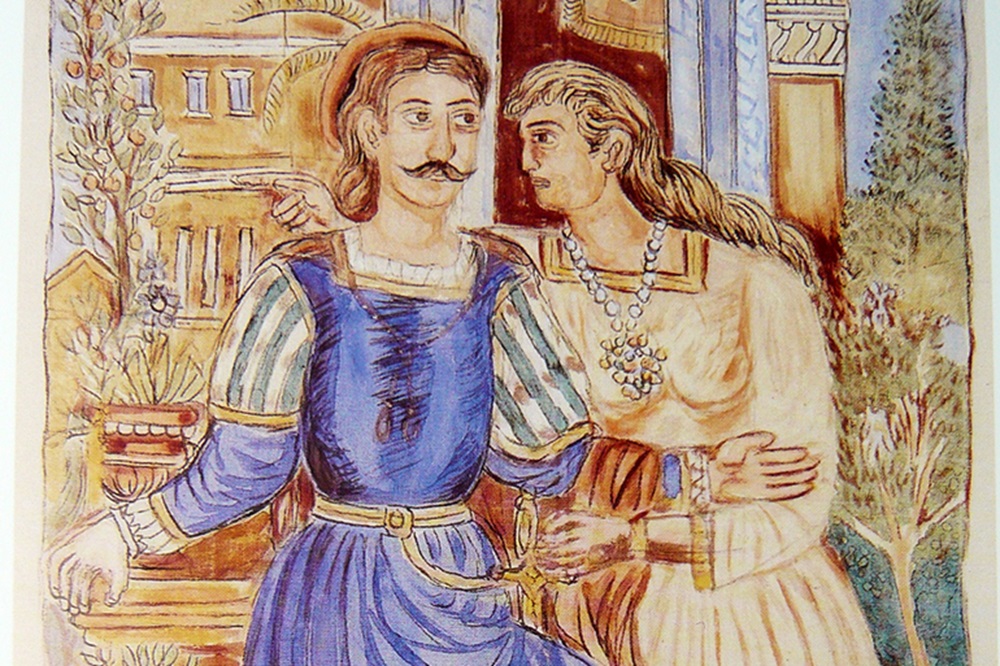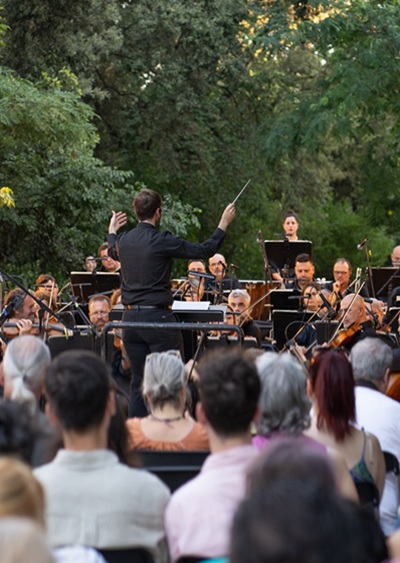
The SNFCC readers’ theater series, entitled PARABASES/READINGS, is returning to the core of stage reading this year, drawing inspiration from Cavafy’s verse, “Voices, loved and idealized.”
Christos Loulis reads excerpts from Erotokritos by Vitsentzos Kornaros.
Directed by Dimitris and Orestis Stavropoulos
Erotokritos, “a love poem composed by the ever-noble Vitsentzos Kornaros”— as goes the byline on the cover of its first edition (Venice, 1713) — is an inexhaustible source of inspiration for iconic creators of modern-day Greece. For more than three centuries, the novel in verse of the great Cretan poet has known many republications and translations, and has influenced prominent representatives of Greek literature such as Solomos, Sikelianos, Prevelakis and Ritsos. Moreover, various versions of “Erotokritos” have been produced in theater by leading Greek directors (including Nikos Hatziskos, Thanos Kotsopoulos, Spyros Evangelatos and Vassilis Nikolaidis), while the work was also adapted for cinema by Nikos Koundouros. It also inspired our great folk painter Theophilos and was set to music by composer Nikos Mamagkakis, as well as by Christodoulos Halaris, sung by Nikos Xylouris.
Kornaros’s fascinating poem is written in the Cretan dialect; it combines scholarly and folk tradition and bears obvious influences from the Italian Renaissance. As early as the 17th century, it had already spread across Peloponnese and the islands: people loved it so much, so they memorized the verses and recited, sang, or read them. To this day, “Erotokritos” continues to move audiences deeply, because it speaks the “language of the heart” and “is completely devoid of any trace of linguistic inflation, any kind of rhetoric,” as George Seferis observes in one of his most important Essays [Dokimes].
Erotokritos is in love with Aretousa, the daughter of King Heracles, but her father does not deem him a worthy groom for his daughter and has him exiled. The two young people go through a host of adventures until they are united with the bonds of marriage: they are secretly engaged, Aretousa is imprisoned for refusing to marry the suitor that her father wants to impose on her, while a disguised Erotokritos engages in a dangerous battle and is wounded in his attempt to save King Heracles, who offers the “unknown” warrior his daughter as wife. Aretousa’s faith will be put to the test, but eventually there will be a happy ending.
The 10,000 verses of “Erotokritos” unfold a vivid narration reminiscent of a folk tale, a chivalric romance, or even Homer’s epics, featuring impressive alternations between tender scenes of the young couple in love and epic battles. And all of this is set against the backdrop of a fictional world that charmingly fuses together ancient Athens with the Byzantium and medieval Greece.
Music and sound design: Jeph Vanger
Lighting editor: Dimitris Kasimatis
The event will be performed in Greek.







Leave A Comment